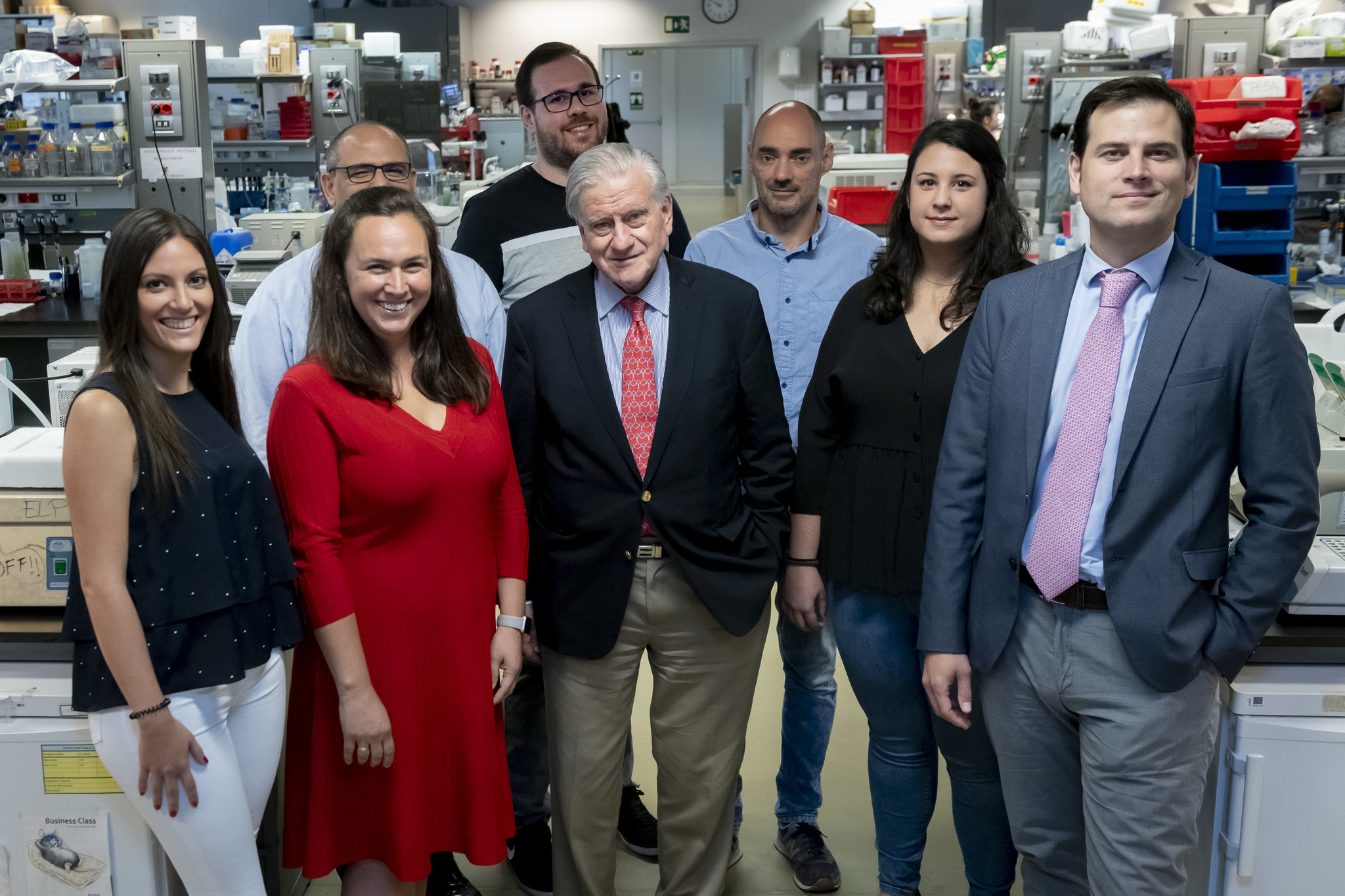Today more than ever, the brain and the heart are interconnected. Spanish researchers have discovered that a drug already marketed for a certain type of patients with cardiovascular pathology may also be able to delay the onset of Alzheimer's. So far, it has only been tested in mice, but the success of the results generates hope and high expectations.
If confirmed in humans, the same drug would help keep both organs healthy . Dabigatran is the name of the active substance. It is a direct-acting oral anticoagulant that, after 12 months of treatment, manages to reduce brain inflammation, vascular damage and amyloid peptide deposits, characteristic signs of Alzheimer's. This is described in an article just published in the Journal of the American College of Cardiology (JACC).
Alois Alzheimer said it more than a century ago, when he described the disease that bears his name (in 1906). This German doctor pointed out that this neurological degeneration involved the involvement of blood vessels in the brain. However, "this aspect was immediately forgotten and during all these years, research has focused on the study of neurons," said Valentín Fuster, one of the main authors of the work and general director of the National Center for Cardiovascular Research (CNIC).
In recent years, some studies in mice pointed out precisely that blood vessels that nourish the brain may be affected by the same protein that damages the arteries that go to the heart. For this reason, brain cells do not receive the necessary oxygen and nutrients and die.
In parallel, the first signatory of this research, Marta Cortés Canteli, was in the United States doing her second post-doc at Rockefeller University in New York. "We began to study the increase in thrombosis as one of the crucial factors in the development of Alzheimer's." It was published in the journal Neuron in 2010. In another subsequent work, "we found that in more than 50% of the samples of mice with Alzheimer's there was a large amount of a protein very characteristic of blood clots that normally would not enter brain".
All this opened a door to start working on the treatment of Alzheimer's from the vascular field , specifically with the help of an anticoagulant medication. Some research groups have experimented with the classics, which affect several proteins, and "we [from the CNIC and in collaboration with the Rockefeller University of New York ] have opted for one of direct action because it involves fewer side effects," he explains. Cortés Canteli, researcher Miguel Servet of the CNIC.
Due to the progressive aging of the population, it is estimated that the number of people suffering from Alzheimer's disease will triple in the year 2050. Currently, this type of dementia affects more than 30 million people in the world. Experts say that every three seconds a new case occurs and, unfortunately, the treatments approved to date only temporarily help with memory problems, but fail to stop or reverse the damage.
In this attempt to find a therapeutic route, the effect of dabigatran "represents an important step forward to transfer our results to clinical practice and thus achieve an effective treatment for Alzheimer's disease", according to the first signatory of the study. Before, efficacy will be corroborated in a rabbit model and then in other larger specimens.
If proven effective in humans, the researcher adds, "a biomarker should be developed to identify patients with Alzheimer's disease who have a high prothrombotic component (with a pro-coagulant tendency) to treat them with this drug." It would be this subgroup that would benefit from the effects of dabigatran, by improving its cerebral circulation.
As Fuster points out, "neurodegenerative diseases are deeply linked to the pathology of cerebral vessels. The study of the brain-heart nexus in neurodegenerative diseases is the challenge of the next decade."
According to the criteria of The Trust Project
Know more- Science and Health
- Health
HealthNeurodegeneration: the epidemic of the 21st century
Health Bionic prostheses to reverse blindness or brain diseases
Health Detect 530 cases of a mysterious disease linked to vaping in the United States

